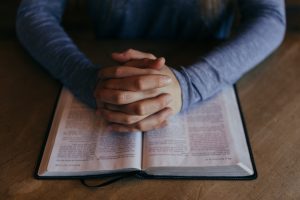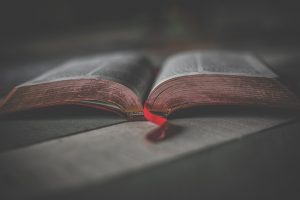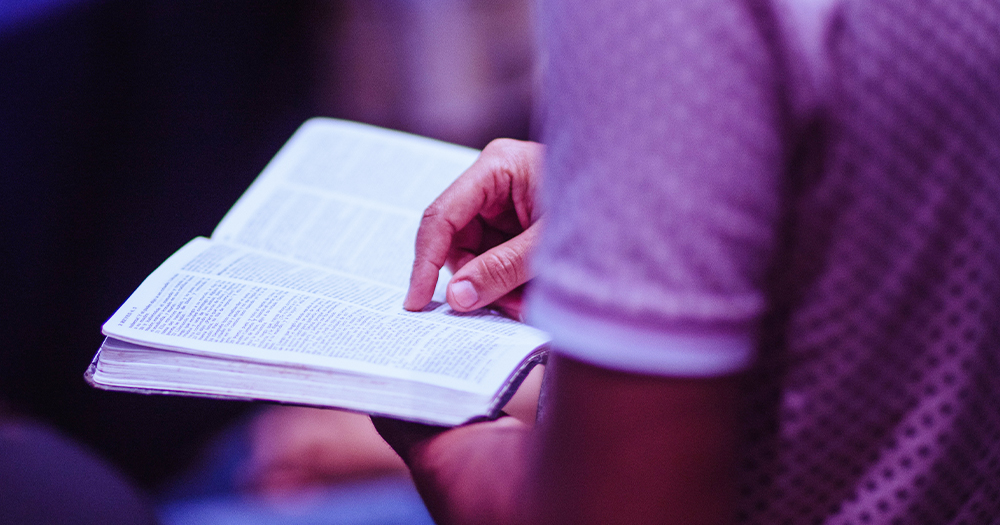I had a number of theories about my sexuality in my early years. At one point, I believed that God had made me gay as a challenge to see if I could overcome my same-sex desire. Later, about a year and a half into my efforts to pray myself straight, I thought that he might have just made some horrendous mistake. But even believing that was difficult, because I knew that God didn’t make mistakes. So, the theory I ultimately settled on was that my attraction to other boys was actually just a phase – it would pass in time and then, finally, I would be just like everybody else.
Needless to say, that didn’t happen.
Today, I am 26 years-old and I am openly and confidently gay. But I still look back on that teenager who so desperately wanted to change who he was and wonder: how did it get to that point? There were many reasons, of course; homophobic bullying, a hostile society – but my intense Catholic faith also played a big part in making me hate myself.
Many of us in Ireland talk about being “raised Catholic”, but this means different things for different people. Some people have intense religious childhoods where any deviation from their faith is met with punishment and shame. For others, it means stepping into a church for the odd communion or confirmation, but little else.
My childhood fell somewhere in the middle of these extremes. My parents, while not exactly devout Catholics themselves, brought us to mass most weekends. We were cultural Catholics, but religion was also a big part of our lives. It was how we came together and it allowed us to connect to something bigger than ourselves.
I lapped it all up. I was a voracious reader, and while I never successfully managed to read the Bible (I tried), I adored the stories I heard in mass. When I was a child, religion seemed exciting, thrilling, and – at its core – obvious. Why wouldn’t I believe in God? He loved me unconditionally. It was a glorious safety net for a child who was, from an early age, prone to anxiety.
I started praying to God every night early on in childhood. Prayer was part of my daily ritual and I looked forward to it. When I think back on that time, I remember feeling so close to God – I felt innately connected with something important. It was a comforting feeling, and I still miss it sometimes.
I didn’t yet know I was gay, but there were plenty of signs indicating that I was different from other children. When I was nine years old, in the playground, another child referred to something as “gay”. I didn’t know what it meant, but I knew by the way he said it that it was a bad thing. When I asked, he explained that it was when two boys liked each other. I distinctly remember how I squirmed and thought to myself: “I hope that isn’t me.”

At 11 years-old, when most boys my age started having crushes on girls, I started having crushes on boys. By the time I was 12, my sexuality was in full swing – and I despised myself for it. I ventured onto Google and quickly established that being gay was not only socially unacceptable, but my church – the religion I cared so passionately about – strictly forbade it. I became increasingly aware of just how hated gay people were within Catholicism. It was an incredibly isolating and alienating feeling, to feel rejected from a place in which I had always felt so at home. I was too young to see the Catholic church’s anti-LGBT+ views for what they are: bigoted, normative, hateful. Instead, I told myself that I was the problem – that I needed to be fixed.
It was in that context that I started asking God to help me, to try to pray myself straight. My efforts were not without their complications; by that point, my faith was starting to crumble around me. I had backed myself into a theological corner, and it was patently clear that there was no easy way out of it. If God never makes mistakes, and makes us in his image, how could he have gone so far wrong with me? Why would he voluntarily create somebody who was intrinsically disordered when he makes everybody in his image? And if he truly loved me, as I had always been told he did, then why would he put me through this unbearable suffering? These questions did not have easy answers, and even while I continued to pray myself straight, they pushed me gently towards the exit door of atheism.
But I held out some hope. I took to crying myself to sleep, forgoing my nightly prayer routine for songs that made me feel less alone. When I was 13, I finally came up with a plan of action – I decided I would ask God to take this burden from me. To my dismay, my efforts to pray myself straight only made me more miserable. I felt utterly hopeless, and started to wonder if I would be better off dead. I contemplated suicide on numerous occasions as a teenager; whether to die or stay alive became a constant grappling point. I often wondered which would hurt my parents more: me dying or me coming out as gay.
Just before my 15th birthday, as I yet again tried to pray myself straight, I told God it would be the last time I would ask him to fix me. I told him I had had enough – I had tried hard enough to rid myself of these feelings. I asked him to rescue me – and he didn’t. That finally put an end to my belief in a higher power.

I’m sure that I will never fully understand the extent of the damage growing up Catholic and gay had on me. Like many queer people, I still, on occasion, feel a deep, internalised shame about my sexuality, and I still feel hatred, anger and betrayal wash over me every time I step inside a church. It is like visiting a childhood home and learning that things are not the same as they were. It is an intensely alienating feeling, standing in a beautiful Catholic church, remembering all the times I tried to pray myself straight, all the times I asked God, Jesus and the Virgin Mary to rescue me.
Today, I am firmly an atheist and the only masses I attend are the odd Catholic wedding. I’m not necessarily happy I’m an atheist, but I am happy that I’m no longer part of an organisation that is not just intolerant, but is actively hostile to LGBT+ people. I now understand that I, like all queer people, deserve so much better than what the Catholic church is prepared to offer us. I still hold out hope that one day, the church will change its teachings on LGBT+ issues, but that hope dims by the day. Every time it looks like Pope Francis is starting to move towards greater acceptance, he imminently throws more discrimination our way.
While my hope has dimmed, it has not died completely. I don’t keep that flame alive for my own benefit – I no longer care what the Catholic church thinks of me. I keep my hope alive for all the other children growing up in that institution. It breaks my heart that they have to learn that they are not loved unconditionally like their straight and cisgender peers. I hope that one day, young queer people will no longer contemplate suicide because the church that was supposed to love them rejected them. I hope that they will be able to go to mass and won’t feel alienated in the way so many queer people do.
But right now, change looks a long way off. The Catholic church of today is an intensely backwards organisation that endeavours to keep people inside tiny boxes. But queer people cannot – and will not – thrive inside boxes.
If you have been affected by this story, you can contact any of the following by clicking on the link:
LGBT Helpline
Aware
Pieta House
Mental Health Ireland
This story was due to appear in our April issue of GCN’s print magazine. We have taken the decision to pause on the publishing cycle for the moment as we feel it’s the safest and wisest move in response to the COVID-19 pandemic. If you would like to support GCN from as little as €1.99 per month, please click here.
© 2020 GCN (Gay Community News). All rights reserved.
Support GCN
GCN is a free, vital resource for Ireland’s LGBTQ+ community since 1988.
GCN is a trading name of National LGBT Federation CLG, a registered charity - Charity Number: 20034580.
GCN relies on the generous support of the community and allies to sustain the crucial work that we do. Producing GCN is costly, and, in an industry which has been hugely impacted by rising costs, we need your support to help sustain and grow this vital resource.
Supporting GCN for as little as €1.99 per month will help us continue our work as Ireland’s free, independent LGBTQ+ media.
